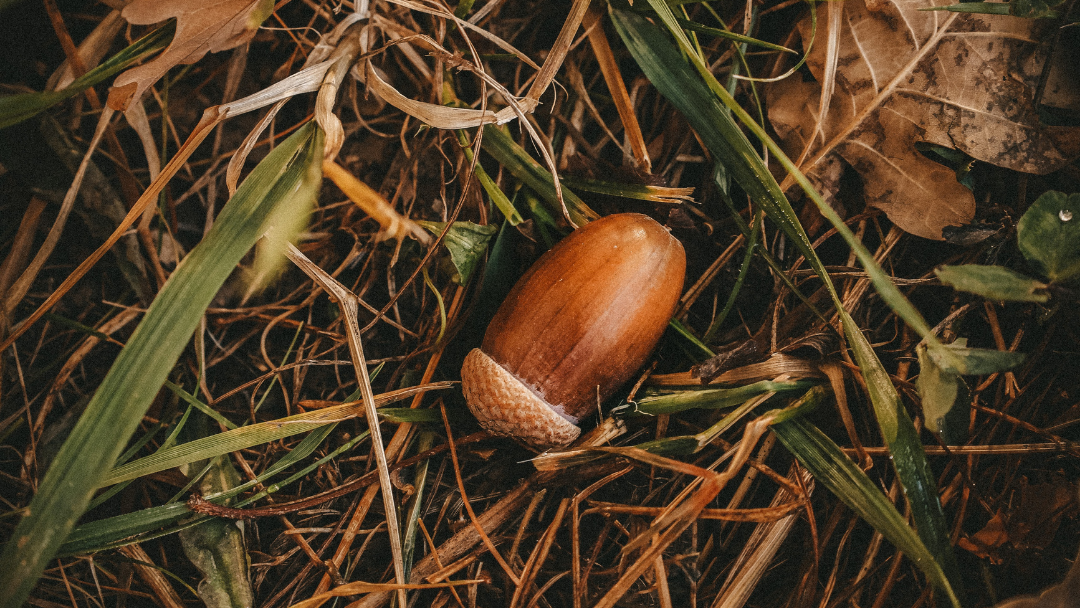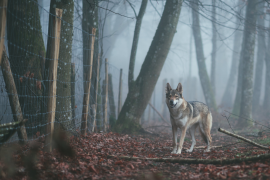PHIL WOKE WITH A SENSE OF DREAD, VISIONS OF SCRABBLING FEET AND SHARP TEETH FRESH IN HIS MIND. He checked the monitor; it whirred with the smooth sounds of the baby’s white noise machine, but no: his son was not yet awake. Phil’s eyes slid over to his wife, who was splayed out and motionless. Before Devon was born, Jane was the lighter sleeper, waking up at the slightest sound. Now, though, nothing could rouse her, and she slept through bloodcurdling screams and moans and whimpers and whines. Weren’t mothers supposed to be more attuned to their children, some sort of evolutionary biology that had them leaping out of bed at the slightest movement? Not Jane. Jane was out cold, strapped into and clinging to her nighttime interventions: the light- blocking eye mask; the mouthguard to protect the teeth she clenched shut every time she closed her eyes at night; the three extra pillows she had started using during pregnancy and never quit, despite Phil’s complaints that it felt like a third partner had joined them in the bed (and not in a good way; to be honest—and Phil was nothing if not honest—the thought of any kind of what he thought of as “fancy sex,” anything extra aside from the vibrator Jane brought out once or twice a year, exhausted him. He had trouble keeping up with Jane’s moods and whims, and now the baby’s… so another person whose sole purpose was to be pleasured and satisfied? Please, find another house. Phil knew he was supposed to want that, two women at once—twins, even, good Lord!—but the idea repulsed him. How did it work, exactly? Was he supposed to bounce back and forth between ladies, paying exactly equal attention to each? But no—surely he would have to spend more time with his wife. And Jane! Was he expected to watch Jane enjoy herself with someone who was not him? He would never, ever be able to get that image out of his head, and he knew that every time they had sex after that, every time, until they were either so old that they couldn’t do it anymore or just couldn’t be bothered, he would be thinking about this faceless woman with her hands and mouth and limbs and mind all over his wife. Who—seriously, he wants to know—who would find this arousing? Phil wondered if the people who claimed to like group sex—his brother’s friend Ben who had bragged about the threesome he had during his bachelor party; or the matron of honor he made out with, during one of the handful of reckless moments of his life, at his cousin Sandra’s wedding—did so because they knew they were supposed to, that all people within a certain income and educational bracket had to be evolved in this specific way, where sex was casual and the borders of their relationships were so strong that they could stand to be permeated every once in awhile. “Thank you, but no,” Phil would say, if the scenarios in his mind ever played out. Because he did fantasize about the offer, of course—he was a hot-blooded man, for godsakes!—and in particular, the part where he demurred, preserving both his integrity and ego while conveying respect for the feelings of the rejected party. But then, inevitably, this would always happen: he spun out, mired down in the logistics, and—yep! he checked his watch, which monitored his heart rate and his deficiencies in physical activity—he not only had a moderate erection, but his heart was beating one-hundred-and twelve times per second. But where were we? We are not here to discuss Phil’s sexual proclivities, nor his neurotic aversions to them). And so it had been, from the night they brought Devon home from the hospital, that Phil would wake up first, change the baby’s diaper, and then bring him to Jane, who may or may not have woken up on her own by then. Now that Devon was no longer breastfeeding and (mostly) slept through the night, Phil still woke up first, with Devon, and would often have finished his own breakfast by the time Jane stumbled down the stairs, bleary-eyed.
For the past two weeks, though, Phil had taken great care to slip out of the bed undetected, avoiding the creaky spots on the floor and trying to make it all the way down the stairs without waking their son. (Most of their parenting energies were spent trying to get the baby to sleep, and once successful, keep him in his crib by whatever means necessary. One thing they had done, since bringing him home, was keep the blinds in the house drawn until late afternoon; their dog, Moonie, a wiry terrier whose anxiety exceeded even Phil’s, grew distressed if she saw any movement outside at all, and her bark would, without fail, cause Devon to not only awaken but cry with such passion, such betrayal at having been ripped from his slumber, that Devon, then, would need at least forty-five minutes of soothing and rocking and distracting. Jane and Phil would also feel a deep sense of betrayal, laced with an undercurrent of rage that seeped out hours later as they each took turns blaming the other for taking an eye off the dog to go to the bathroom or check their phone or sneak a moment of sleep.) Phil left the monitor plugged into its cord, but moved it onto the bed, hoping it would jar Jane out of sleep for a change. He chastised himself for his pettiness, but then the voice of his therapist, Ed, popped into his head. “Feel your feelings, Phil. You need to learn that the worst won’t happen.” I’ll feel them, alright, Phil thought as he skipped down the final two steps and into the kitchen and over to the backdoor, remembering at the last minute to switch the security system off before turning the handle.
Moonie was at his heels and bounded ahead of him, down the back steps and into the yard. She circled Devon’s red wagon twice, then lifted her leg to pee on one of its back wheels. (To say that Moonie resented her displacement as favorite child was an understatement.) Phil looked back at the kitchen, knowing Jane wouldn’t have awakened and come downstairs by now, but still crossing his fingers that she hadn’t witnessed the dog pissing on their child’s novelty vehicle. (They fought about Moonie, vaguely, every other day, and intensely once a month. Moonie had been Jane’s dog first; Phil hadn’t taken to her immediately, adding her to the “yappy dog” category he loathed. The two had bonded one weekend while Jane was away at a conference, during Phil and Jane’s first year of dating. Phil knew he had to make an effort with Moonie if he wanted Jane to consider him seriously as a partner, and so he had offered to stay at Jane’s apartment and save her the hassle of boarding Moonie with the vet. Moonie had been wary of Phil at first, eyeing him from across a room and waiting full minutes before approaching her food bowl at meal times. He won her over the morning after their first solo night together, when he brought her running along the reservoir with him. He let her leash out long and they galloped together, Moonie racing ahead, then circling back to let him catch up. After two miles, when Phil stopped to stream some of the water from his bottle into Moonie’s mouth, she lapped it up eagerly, then pressed her warm body against his legs, her heart beating visibly through her fur. Now, though, the tables had turned, and Jane hated the dog. “Stop it with your goddamn need,” she would hiss as Moonie trailed her around the house, closing herself into a room whose door Moonie couldn’t open. Jane hadn’t said it outright, but Phil could tell she was hoping he would suggest, on his own, that they find a new home for Moonie. Not a chance, he told Moonie every night as he put her to bed downstairs, brushing her teeth and tucking her blanket around her.) Phil heard a rustling, and saw a movement out of the corner of his left eye. “Not today, you fuckers!” he shouted as he raced to the garden, not stopping to notice or care that it was before seven on a Saturday morning. A bushy tail was poking through the chicken wire Phil had installed, painstakingly, around his garden to keep the vermin out. (Phil’s neighbor, Gerry, had told Phil, when he and Jane first moved into their house, about the squirrel problem in the neighborhood. Gerry had built a greenhouse off of his garage, sealing the plexiglass with wooden lattice on the bottom half of the structure; the top was left open to allow for water and sunlight, but over the past several years, the squirrels had become particularly wily, and so he’d stapled half-inch gauge mesh wire to the top. Last week, Gerry noticed his ripe tomatoes had started disappearing; he discovered a two-inch hole in a bottom corner of the lattice. In early spring, Phil had preemptively built a three-dimensional cage for his garden using forty yards of nylon bird netting. Within days, there were fist-sized holes dug into his soil, his bulbs and sprouts strewn carelessly about the plot in mockery. In June, once the tomatoes started growing, Phil had reinforced the area surrounding the makeshift gate with metal fencing; the squirrels squeezed through that to bite through the net. He added chicken wire that Jane had solicited from their local Buy Nothing group, along with wooden planks, to the fencing; the squirrels bent the wires and pushed themselves in. Finally, Phil bought a seventy-five dollar roll of chicken wire to surround the entire, three-dimensional cage; he spent two hours stringing it up—the entirety of Devon’s nap, and snacktime, which Jane did not hesitate to point out. That night, while eating dinner on their screened-in porch, Devon pointed into the yard. “Cyril!” he cackled, using the name he affectionately called all squirrels, after a favorite bedtime book about a mouse’s quotidian adventures. Phil felt Jane watching him, warily, but Phil said nothing, silently scheming.) Phil whistled to Moonie, who had finished baptizing Devon’s wagon and was now sniffing around the wildflowers Phil had planted several months ago, on one of the first warm days of the year. “Moonie!” Phil called, frantically pointing at the garden’s fence; the tail had disappeared into the garden. “What kind of a fucking dog are you?” he muttered under his breath, which, horrified by his own disloyalty, he quickly followed up with, “You’re such a good girl, sweetheart, I love you so much!”
Phil approached the fence, peering in to the thicket of tomato vines. The Cherokee Purples he’d selected because of their name (Devon loved purple), the Romas he knew would be most useful (Phil’s tomato sauce was the stuff of legend), the Brandywines (his grandfather’s favorite, and so their juicy salinity was bittersweet on Phil’s tongue). All of the tomatoes: gone. A green sphere, no bigger than a golf ball, lay at the front corner next to the compost with a tiny bite taken out of it; the squirrels had become both ruthless and discerning, decimating his crop of not just the beautiful ripe fruit, but sampling and then discarding those that needed more time and cutting off all hope of their future. At the start of summer, Phil had joked to Jane that they would have enough plants for three tons of tomatoes. They would can them, and freeze them, and make them into sauce. They would share them with neighbors, cementing their reputation as generous and kind, assets to the community. And ho, how they would cook! Caprese salads, panzanella, mayo-and-tomato sandwiches. That one-pan pasta the internet was always on about at this time of year. Tomato galettes, tomato cobbler, deep-dish tomato pie. They would swim in marinara and their kid would have his first dip of grilled cheese in homemade tomato soup. “These tomatoes,” Phil had told Jane as he wrapped an arm around her, “will make all of it worth it.” Neither he nor his wife needed to say aloud what “it” was; they were each both witness and participant to their own workaday drudgery, after all.
It was illegal to shoot a squirrel in the state of New Jersey; Phil had looked into this. There had been a man, about a decade ago, who had killed them in his backyard and strung them up along his fence for all of the neighbors to see. Phil was a vegetarian; killing did not excite him. And yet: he couldn’t help feeling a shared camaraderie with this man, this Squirrel Killer, who had, perhaps, seen a squirrel run off with the literal fruits of his labor one too many times. Phil had mentioned to Jane one night in bed, feigning casualness, that he might make a slingshot out of paper clips and a rubber band. “That sounds dangerous, Phil,” Jane said, not looking up from her book. Death-by-slingshot probably wouldn’t get him arrested, right? He knew Gerry wouldn’t turn him in, and Phil could knock a few off on Gerry’s property, too. Phil would be a hero! He would be a good neighbor! And he would provide his family with the goddamn tomatoes he had promised them.
And so here Phil was, at six-fifty-two on a Saturday morning. He heard the newspaper truck come by, and a pair of early morning runners chatting not far off, but otherwise the street was silent. Phil reached into the waistband of his shorts, where he’d tucked his slingshot. The instructional video he’d watched while putting his weapon together hadn’t specified what to use for the ammunition, but Phil figured he could use the acorns that had started to fall from the oak tree behind his house. There was something poetic about using their own food—or what those assholes should be eating, instead of Phil’s fucking plants—to kill them. He bent down and picked an acorn out of the grass, fitting it into the tape-and-rubber-band ammo holder. Right on time, the squirrel emerged from a row of tomatoes—the Romas, if you are interested—holding one last orange orb in its teeth. The squirrel spotted Phil and froze; Phil, too, held himself still as he stared into the animal’s glistening black eyes. Its tail began to flick and shake, whipping around in what looked to Phil like some kind of rabid mating ritual. The squirrel took a tentative step, then another and another, finally launching itself off the ground and onto the wooden fencing that lined the gate to the garden. Slowly, Phil drew the slingshot up to his eye level, holding the acorn in place with his thumb and forefinger.
The squirrel stuck its head out of the gate, glancing briefly at Moonie who now, finally, had sensed the tension in the yard and was growling softly. “Come on, come on,” Phil whispered, and the squirrel obeyed, slinking out of the mesh and along the side of the gate, the tomato bobbing up and down as it made its way to the top of the net. Just as the squirrel reached the corner of the net that connected to the garage, Phil released his hold on the slingshot and the acorn sailed forward and into the squirrel’s head, a clear and perfect shot that culminated in a dull pop!, the tomato falling over the side of the net and gobbled up by Moonie. The squirrel fell backward, caught in the top of the net like an exhausted acrobat. Its arms and legs kicked out as if running through air before growing still once more, the only movement the gentle swaying of the net. Phil whooped, forgetting himself and the time once again. “You fucker! That’ll show your friends not to mess with my shit!”
Phil heard the backdoor open and close, and turned to see Jane and Devon holding hands on the porch, both pajama-clad and confused. “Cyril?” Devon pointed to the net. Jane’s gaze darted between the suspended squirrel and her husband who was, we are just now realizing, not wearing shorts after all, but a pair of ratty boxer briefs and nothing else, standing barefoot in the dew-damp grass. Jane shook her head at Phil, whistled for Moonie, and disappeared back inside with her charges.
A throat cleared next to him. Phil turned. “Looks like you got one,” Gerry said as he dropped a bag of garbage into his metal bin. Phil looked down at the slingshot in his hand and shrugged his shoulders, a bark of humorless laughter escaping his throat. “You’ll want to take that down before the other neighbors see it,” Gerry said, gesturing with his chin to the other side of Phil’s lawn. “They’re very by-the-books, those folks.” Phil nodded and turned, lifting his hand in farewell as he climbed up his back stairs. He stood there a moment, barefoot in his underpants, and watched his wife and son as they went about making breakfast, Jane stirring the oatmeal while Devon watched from his high chair. Phil descended the steps again and went around the side of the house to the trash can, which he opened and dropped the slingshot into, using his hand to shuffle bags of dog poop so it was completely hidden. He walked around to the back of the house again, giving the dead squirrel one last look. “You made me do it, you know,” Phil said. Then he walked upstairs, opened the backdoor, and joined his family for breakfast.
Like what you’re reading?
Get new stories or poetry sent to your inbox. Drop your email below to start >>>
OR grab a print issue
Stories, poems and essays in a beautifully designed magazine you can hold in your hands.
GO TO ISSUESNEW book release
I’ll Tell You a Love Story by Couri Johnson. Order the book of which Tim Jeffries said, “Surprising in their originality, filled with broken wisdom, and with a refreshing use of language and imagery, these are stories to savour and mull over one at a time but which add up to a satisfying whole.”
GET THE BOOK



